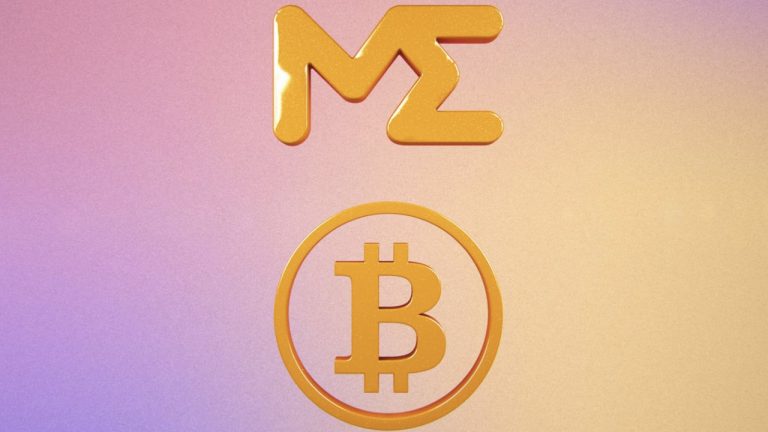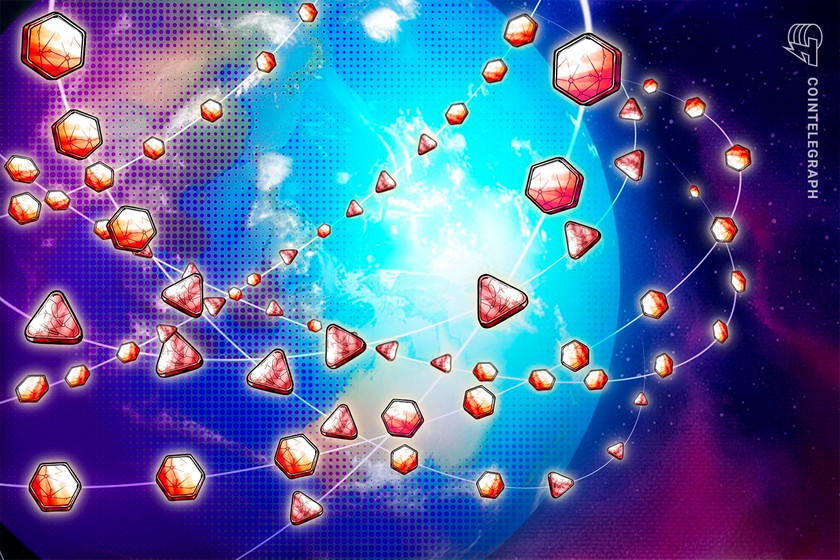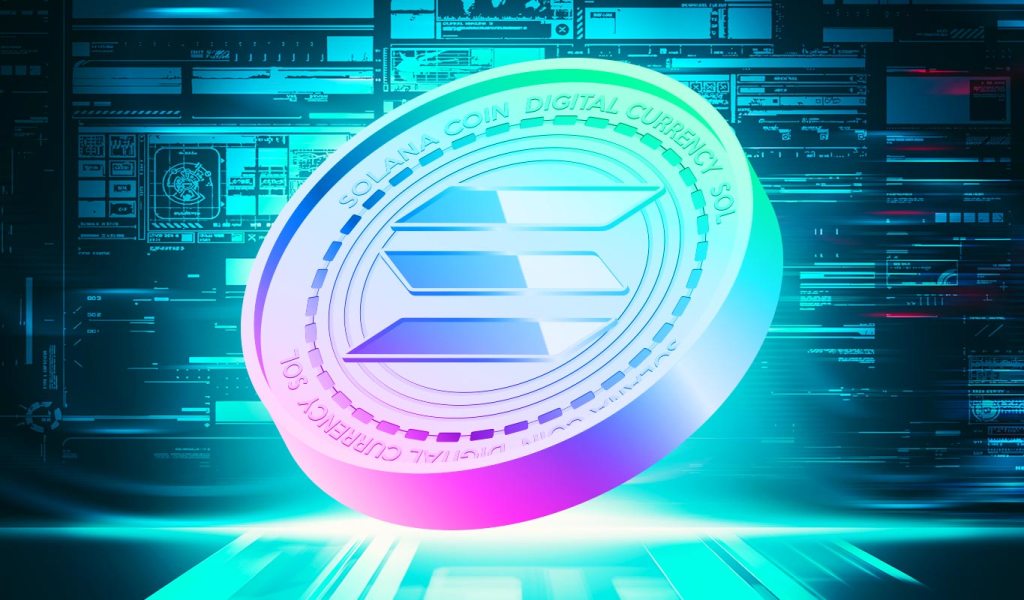 On April 8, 2023, the number of Ordinal inscriptions surpassed the million mark as the non-fungible token (NFT) trend has seemingly become a mainstay. Presently, on Sunday, April 9, the total number of Ordinal inscriptions is 1,049,263, and so far, 169.85 bitcoins worth $4.7 million have been collected in fees. Ordinal Inscriptions Reach 1 Million […]
On April 8, 2023, the number of Ordinal inscriptions surpassed the million mark as the non-fungible token (NFT) trend has seemingly become a mainstay. Presently, on Sunday, April 9, the total number of Ordinal inscriptions is 1,049,263, and so far, 169.85 bitcoins worth $4.7 million have been collected in fees. Ordinal Inscriptions Reach 1 Million […]
It’s one of the first major NFT marketplaces to join the Bitcoin Ordinals fray.
Nonfungible token (NFT) marketplace Magic Eden has launched its own “fully audited” marketplace for Bitcoin Ordinals, leveraging the surging interest in “Bitcoin NFTs.”
The newly launched marketplace allows Bitcoin (BTC) NFT traders to buy and sell Bitcoin Ordinal collections, giving users a similar experience it offers for Polygon, Ethereum, and Solana-based NFTs.
Extremely excited to announce that @MagicEden is now on Bitcoin. With this, we are simplifying the journey for collectors and creators to get started on Bitcoin - the granddaddy of all chains. Kudos to @kevcode_art @zhouzhuojie @ChartFuMonkey who championed this effort. https://t.co/0W7i0uBvPT
— Zhuoxun Yin (@ZhuoxunYin) March 21, 2023
“Just as we have expanded into other chains, we now aim to bring our expertise in building marketplaces to the nascent, yet flourishing Ordinals ecosystem,” the firm said in a March 21 statement.
The new Ordinals protocol was introduced in January 2023 by former Bitcoin core contributor Casey Rodarmor. Since then, the popularity of Bitcoin Ordinals has surged.
According to data from Dune analytics, between Feb. 1 and March 1, the total number of Bitcoin Ordinals inscriptions surged from 679 to 240,000. As of March 21, a total of 567,087 have been inscribed.
“We paid close attention to the release of Ordinal Theory and the lightning pace of adoption that soon followed,” said Magic Eden, adding it built the new marketplace in less than a month:
“Our marketplace was built within a month, culminating in a hackathon in California with over a dozen devs.”
Currently, the marketplace only supports secondary sales of Bitcoin Ordinals. The marketplace said it is also looking into future tools that would allow creators to more easily mint or inscribe Bitcoin NFTs, such as its Launchpad which it offers for other chains.
In order to enable permissionless swaps, it uses partially signed Bitcoin transactions (PSBT) — a Bitcoin standard that allows multiple parties to sign the same transaction — rather than smart contracts.

Meanwhile, Magic Eden says there will be no royalty support for the marketplace, but said it is “actively looking” into this, adding there is “very little tooling and no secure and trustless enforcement solutions.”
“With no royalty standard today, we have decided to launch on Bitcoin without royalty support for now,” said Magic Eden.
First sale on @MagicEden someone papered a mickey for 1.33 BTC LFG! @DeGodsNFT @frankdegods pic.twitter.com/nNtb6z8fiZ
— buzzcutandbeanie X+ ⓻ (@bornwithbeanie) March 21, 2023
“We believe that this is most in-line with the ethos of the ecosystem, and despite this, we are actively looking into the development of an on-chain, permissionless royalty standard and are committed to working with creators and the greater community,” it added.
Related: Bitcoin thought leaders weigh the pros and cons of Ordinals
Other Bitcoin Ordinals marketplaces have already launched, including ORDX and Generative XYZ which launched in February. Earlier this week, NFT platform Gamma.io unveiled its own Bitcoin Ordinals marketplace, allowing users to create and trade ordinal inscriptions in a manner similar to Ethereum NFT marketplaces.
Cointelegraph contacted Magic Eden for comment but did not immediately receive a response.
NFT Creator — Terrell Jones: Become a hot new NFT artist via the ‘soft shell taco method’
 On Monday, the non-fungible token (NFT) marketplace Magic Eden announced the launch of Bitcoin Ordinal inscription support. Magic Eden said it has partnered with the wallets Hiro and Xverse to “bring a familiar wallet transaction experience to the marketplace.” Magic Eden’s Decision to Launch on Bitcoin Without Royalty Support and Compete With Emerging Markets Magic […]
On Monday, the non-fungible token (NFT) marketplace Magic Eden announced the launch of Bitcoin Ordinal inscription support. Magic Eden said it has partnered with the wallets Hiro and Xverse to “bring a familiar wallet transaction experience to the marketplace.” Magic Eden’s Decision to Launch on Bitcoin Without Royalty Support and Compete With Emerging Markets Magic […]
Square Enix’s NFT-friendly CEO is stepping down, but it may not impact the firm’s NFT plans, while Disney-backed Baobab Studios' first NFT drop sold out ahead of its upcoming RPG game.
Krapopolis, the NFT-affiliated cartoon series from Rick and Morty co-creator Dan Harmon has been renewed for a third season by Fox, despite season one not even airing yet.
The Krapopolis team announced the renewal via Twitter in March. 2, and emphasized that NFT holders can still engage with the show before it airs.
HOLY KRAP! Citizens we just got BIG news that Krapopolis has been renewed for a *third season*. You don’t need to wait for the show to start, you can start participating now by voting, viewing exclusive content, redeeming rewards and more on https://t.co/vQCCep6yyq!
— Krapopolis (,) (@Krapopolis) March 2, 2023
Speaking to Deadline on March. 2, Michael Thorn, Fox’s president of scripted programming noted that “We’re so bullish about the work that we want to support and its ability to find an audience and succeed,” as he emphasized his faith in Harmon. “While [a third season order] is atypical, it was a no-brainer for us with Krapopolis,” he added.
Krapopolis is an animated comedy set in ancient Greece that follows a “flawed family of humans, gods and monsters that try to run one of the world’s first cities without killing each other.”
The case includes some big names such as Richard Ayode, Matt Berry, Pam Murphy, Duncan Trussell and Hannah Waddingham.
The series is produced by Fox Corp’s NFT firm Blockchain Creative Labs, which also provided the NFT-related elements for the show.
The NFTs themselves are called “Krap Chickens” and depict cartoon chicken avatars in the same style of art as the show. There are 10,420 tokens in total, with some still up for mint at 0.18 Ether (ETH).

Holders are given exclusive access to experiences, content, rewards and voting rights on certain aspects of the show.
Square Enix’s NFT-friendly CEO Yosuke Matsuda is stepping down after nearly 10 years at the helm of the firm behind the Fantasy franchise.
In a March notification of company changes, Square Enix outlined that Takashi Kiryu will take over the role of CEO from Matsuda. The move won't officially be finalized until an annual shareholders meeting in May however.
While Web 3 and NFTs weren’t referenced explicitly in the notification, the firm did indicate that it is still looking to push on with new tech integrations, suggesting its blockchain-related plans may remain unhindered.
“Under the rapid change of business environment surrounding the entertainment industry, the proposed change is intended to reshape the management team with the goal of adopting ever-evolving technological innovations and maximizing on the creativity of the Company’s group,” the filing read.
During his time at Square Enix, Matsuda outlined bullish sentiments on Web3 gaming on several occasions.
In a New Year’s letter from Jan. 1 in particular, Matsuda emphasized Square Enix had devoted “aggressive investment and business development efforts” towards the space in 2022, and would continue to do so in 2023.
“Following the excitement and exhilaration that surrounded NFTs and the metaverse in 2021, 2022 was a year of great volatility in the blockchain-related space,” he mentioned in the note, adding that:
“However, if this proves to have been a step in a process that leads to the creation of rules and a more transparent business environment, it will definitely have been for the good of the growth of blockchain entertainment.”
Under Mastuda’s leadership, Square Enix rolled out tokenized Final Fantasy character collectibles in July 2022 and partnered with the Oasys blockchain gaming project in September. In December, the firm also invested $52.7 million into mobile game developer Gumi Games, to help develop mobile-based play-to-earn titles.
Multi-chain NFT marketplace Magic Eden has launched a “Mint Madness” campaign that offers free access, or “free mints” to 13 Web3 games in March.
Mint Madness went live on March. 3, and the name is a nod to the famous NCAA college basketball tournament dubbed "March Madness" which sees roughly 67 basketball games crammed into the month.
The blockchain games are spread across Polygon, Ethereum and Solana, with nine, three and one apiece respectively. Magic Eden is also offering a 20,000 Polygon (MATIC) prize pool worth roughly $23,200.
Announcing MINT MADNESS: 12+ FREE gaming mints across Polygon, ETH & SOL in March ️
— Magic Eden (@MagicEden) March 2, 2023
The 10 top traders for our 9+ @0xPolygon mints can win $ from our 20K $MATIC prize pool
Register your Polygon wallet to enter https://t.co/hpXudzuaS1!
Don't forget to follow @MEOnPolygon! pic.twitter.com/KLFTBrnwxZ
The prizes will go to the top 10 traders of the NFTs related to nine of the new games based on Polygon, with the top prize fetching 4,500 MATIC ($5,220).
Related: Galaxy tips Bitcoin NFT market to hit $4.5B by 2025
The full list of available games during the promo includes Planet Mojo, Meta Star Strikers, Alaska Gold Rush, Shrapnel, Petobots, Blast Royale, Rogue Nation, Tearing Spaces, Freckle Trivia, Realm Hunter, Legendary: Heroes Unchained, Shrapnel, and Papu Superstars.
Nine-time Emmy Award-winning, Disney-backed Baobab Studios sold out its first collection of 8,888 NFTs in just nine hours after launch on March. 2.
The journey begins, we have sold out. pic.twitter.com/letPxGkhUR
— Momoguro (@MomoguroNFT) March 3, 2023
The cartoon avatar-focused drop is called “Momoguro” and is tied to an upcoming role-playing (RPG) game on layer-2 Ethereum scaling solution, Immutable X.
The game itself has breeding elements, along with quests in a world named “Uno Plane,” with NFTs being a key part of the gaming experience.
According to data from CryptoSlam, the NFTs have generated $8.1 million worth of secondary sales to date, with $7.6 million of that coming on the day of launch.
Layer-1 Ethereum Virtual Machine (EVM) blockchain Flare welcomed its first NFT platform, after Sparkles went live on March. 2. The platform is set to hone in on the interoperability of native Flare protocols to increase use cases for NFT utility.
On March. 1, Trading platform Robinhood launched its Web3 wallet on Apple’s App Store, becoming available to iOS users in over 130 countries.

Over two dozen fake NFTs were sold on the Magic Eden marketplace over a 24-hour period due to a "massive exploit" on the platform.
Nonfungible token (NFT) marketplace Magic Eden has pledged to refund all users who were duped into purchasing fake NFTs on its website as a result of an exploit.
In a Jan. 4 statement, the company said a bug in its newly deployed "activity indexer" for its Snappy Marketplace and Pro Trade tools essentially allowed fake NFTs to skirt verification and get listed alongside genuine NFT collections.
Magic Eden said the exploit led to 25 fraudulent NFTs sold across four collections in the last 24 hours but is currently confirming whether additional NFTs were affected beyond the last day.
Two of the affected projects were the high-priced and popular Solana-based collections ABC and y00ts.
Do not buy these @y00tsNFT on @MagicEden, they are fake!
— HGE.SOL ♂️ (@HGESOL) January 4, 2023
Basically, every single collection is fake on Magiceden, a massive exploit is happening ongoing.
High-value NFTs are suffering the most, as attackers choose to exploit higher-value NFTs first. pic.twitter.com/35RYHOKVxd
The NFT platform said it has rectified the issue by temporarily disabling both tools and eliminating the “entry points” that allowed unverified NFTs to get through.
It also asked users to perform a “hard refresh” to ensure the unverified listings no longer show up on their browser session and shut down the purchase of unverified NFTs as a precaution.
“Magic Eden is safe for trading and we will refund all the users who mistakenly bought unverified NFTs specifically due to this issue,” it wrote.
Earlier today, unverified NFTs were being shown as part of verified collections on ME. In the last day, impact was contained to 25 unverified NFTs sold in 4 collections.
— Magic Eden (@MagicEden) January 4, 2023
We've resolved the issue and will refund those affected. Now, no one can buy unverified NFTs on ME.
Magic Eden first raised the alarm over the fraudulent NFTs in a Twitter post on Jan. 4, citing community reports that people were able to buy fake ABC NFTs. At the time, it said it added “verification layers” in an attempt to resolve the issue.
After the announcement, Twitter users continued to sound the alarm on fake y00ts NFTs pervading the platform. A screenshot from ABC creator “HGE” showed at least two sales worth 100 Solana (SOL) each, a total amount of around $2,600.
DeGods, the creator of y00ts, also tweeted to its followers that there was an exploit on Magic Eden that allowed unverified NFTs to be listed as part of the collection.
There is currently an exploit on Magic Eden allowing for unverified NFT’s to be listed as part of the collection
— DeGods III (@DeGodsNFT) January 4, 2023
You can verify if an NFT is part of the collection on our explore page linked below
If it’s not in our explorer, it’s not our NFThttps://t.co/c4HKIJJD1n
The latest exploit is now the second incident that users of Magic Eden has had to go through this week.
On Jan. 3, the marketplace was littered with pornographic images and images from the television series The Big Bang Theory.
Related: NFT influencer falls victim to cyberattack, loses $300K+ CryptoPunks
Magic Eden said a third-party image hosting provider was “compromised” leading to the “unsavory images” and assured users their NFTs were safe.
Cointelegraph contacted Magic Eden for comment but did not immediately receive a response.

The NFT marketplace said the issue was caused by its third-party image hosting provider and assured users their NFTs were safe.
Nonfungible token (NFT) marketplace Magic Eden had to assure users their NFTs “are safe” after a spate of pornographic images littered its platform on Jan. 3.
In a Jan. 3 Twitter post the Solana-based NFT marketplace told its users it “has not been hacked” and the “unsavory images” were the result of its third-party image hosting provider being “compromised.”
According to Jan. 3 reports on Twitter from Magic Eden users, loading into a collection’s page would sometimes temporarily flash a pornographic image in place of the NFT thumbnail.
Yo @MagicEden wtf is this pic.twitter.com/Xums9EZtm6
— Fede (@fedeonekenoby) January 3, 2023
Others reported seeing a still from the comedy television series The Big Bang Theory instead.
“Anyone else seeing the characters from the series Big Bang Theory very quickly while loading their items on Magic Eden? WTH did I just witness” @Yaboibeclownin tweeted.
Uhhhhhh https://t.co/VT2m8fBrPh pic.twitter.com/NEftIkywHu
— Clôwn (@Yaboibeclownin) January 3, 2023
Magic Eden advised users that doing a “hard refresh” of one’s browser will fix the issue.
A hard refresh typically involves clearing the browser’s cache and forcing it to reload the most recent version of the page.
Hey guys our image provider, a 3rd party service we use to cache images, was compromised. Your NFTs are safe and Magic Eden has not been hacked. Unfortunately you might've seen some um, unsavory images. Make sure you do a hard refresh on your browser to fix it.
— Magic Eden (@MagicEden) January 3, 2023
At the time of writing, the issue appears to have been rectified as the reported images have not appeared on the platform upon testing.
Related: China’s first national NFT marketplace to launch next week: Report
According to DappRadar, Magic Eden is the largest Solana-based NFT marketplace and the third largest of all NFT marketplaces based on 30-day volumes of $74.65 million, below OpenSea and Blur.

Solana (SOL) co-creator Anatoly Yakovenko has chimed in on the expansion of some of the blockchain’s biggest projects to other chains. In November, Solana’s largest marketplace for non-fungible tokens (NFTs), Magic Eden, announced it was expanding to its third chain, Polygon (MATIC). Magic Eden also operates on Ethereum (ETH). Later that month, Solana crypto wallet […]
The post Solana’s Anatoly Yakovenko Shares Thoughts on Ecosystem’s Biggest NFT Projects Leaving for Ethereum and Polygon appeared first on The Daily Hodl.

NFT gaming is at a similar stage to the early mobile gaming days, says a Magic Eden exec, while an analyst from Dune Analytics claims 58% of NFT trading volume this year has been wash trades.
After a sell-out launch that pocketed roughly $4.45 million from primary sales, former United States president Donald Trump’s NFT collection is already on a crash course towards earth.
Trump rolled out his odd-ball self-themed 45,000 NFT trading card collection on Dec. 16 for $99 a pop. The NFTs were all gobbled up within a couple hours of launch, and within the next two days the floor price shot up to an all-time-high of around 0.83 Ether (ETH), or $1,006 on OpenSea.
Since then however, the floor price has been volatile, while some in the community have highlighted that the NFT artwork may been plagiarized from other sources.
According to OpenSea data at the time of writing, the floor price sits at 0.2 ETH ($242), marking a hefty retracement of roughly 75%.
Trump NFTs Tanking as Hype Dies, Floor Price Down 70% https://t.co/gFAQLguJbl
— Commom'sen (@SenCommom) December 21, 2022
24-hour trading volumes have also dried up significantly, going from around 1,541 ETH ($1.8 million) on Dec. 18, to just 14.37 ETH ($17,402) by Dec. 21.

Another big celebrity name jumped on the NFT bandwagon this week. NBA hall of famer and Chicago Bulls great Scottie Pippen launched a NFproject that sold out in just 77 seconds.
The drop dubbed “Scottie Pippen SP33” consists of 1,000 unique NFT Metaverse wearable sneakers which went for a mint price of 0.2 ETH ($241). The NFTs are Ethereum-based and said to be compatible with “just about any ecosystem.”
The floor price has since risen to 0.42 ETH ($507) according to OpenSea data, and the project has generated 211 ETH ($255,000) worth of trading volume since Dec. 21.

A limited number of randomly chosen hodlers will also receive bonus benefits, with 33 receiving a physical pair of sneakers, two getting the chance to play golf with Pippen and one lucky person getting a tour of Pippen’s home town plus a dinner afterwards.
The NFTs were developed in partnership with Web3 entertainment firm Orange Comet, which seems to have a solid format down pat given that it also produced a collection for Sir Anthony Hopkins that sold out in just seven minutes.
SP33 SOLD OUT IN 77 SECONDS
— Orange Comet (@OrangeCometNFT) December 20, 2022
ORANGE COMET MAKES HISTORY ONCE AGAIN
Thank you all for participating in the @ScottiePippen SP33 Mint on @opensea.
Things only get better from here, stay tuned for more announcements on the utility reveal...https://t.co/cRXVOidCtV
Chris Akhavan, the chief gaming officer of Solana-based NFT marketplace Magic Eden, believes thaNFT/blockchain gaming is at a similar stage to the early days of mobile gaming.
“I was around in the very early days of mobile gaming, right after the iPhone came out, the App Store came out,” he told TechCrunch on Dec. 21, adding that “I remember the attitude back then amongst traditional gaming companies was that mobile games were stupid.”
Despite facing much skepticism in its early days, mobile gaming has gone on to become the most popular method of gaming across the globe. A report from New Zoo in Jun.2020 in particular, highlighted that there were 2.5 billion mobile gamers compared to 1.3 billion PC gamers and 800,000 million console gamers that year.
As such, Akhavan is not fazed by the criticism of the Web3gaming space and tips it to boom over the next few years.
“We think the same journey is going to happen in Web3,” he said, emphasizing that billions of dollars have already been invested in the Web3 gaming studios to build out a new avenue for gaming.
The impressive trading volumes of Ethereum NFTs may be a “mirage” according to a recent Dune Analytics blog post from pseudonymous NFT market analyst hildobby.
This is because NFT trading volumes on Ethereum may have been skewed by significant NFT wash trading, which hildobby says made up of around 80% of total trading activity in January this year duringnits
Looking more broadly at the entirety of 2022, that figure sits at around 58% according to hildobby’s data, highlighting that the issue is still rampant and that trading volumes may not necessarily be the best indicator of a NFT marketplace’s usage.
“In a nutshell, the most common method is trading your own NFTs between two wallets you control for the highest amount of ETH possible. The goal is to accrue token rewards with a value in excess of the gas fees you pay,” hildobby wrote, adding that:
“The boom in wash trading really made life tough for us data analysts, since it skews basic statistics that we use to track marketplace usage.”
Limit Break CEO and Web3 game designer Gabriel Leydon highlighted via Twitter on Dec. 20 that the removal of royalty fees by a number of NFT marketplaces may have significantly contributed to this issue.
“Exchange incentivized wash trading will destroy NFTs. It’s amazing how many different ways royalties were important for the space,” he wrote, while suggesting that royalty fees had previously “tamed the exchanges and prevented washtrading on the scale we’re seeing now.”
Exchange incentivized wash trading will destroy NFTs. It’s amazing how many different ways royalties were important for the space.
— Gabriel Leydon (FREE,OWN) (@gabrielleydon) December 19, 2022
Various data platforms such as CryptoSlam have since developed their own methods to filter out potential wash trades, and in their post, hildobby outlined how they are filtering out such trades from their analyses moving forward.
Related: What is the relationship between blockchain and Web3?
In particular, hildobby is now flagging trades where the buyer and seller have the same wallet address, NFTs that are sent back and forth between two wallets, addresses that buy three of more of the same NFT, and wallets in which the buyer and seller were first funded by the same initial wallet.
“When we apply all these filters, the results are eye-opening. On Ethereum, wash trades are only 1.5% of all trades, but…….Over $30B of NFT trading volume - almost 45% of the total - is from wash trading.”
Independent game developer Metaverse Game Studios, which boasts a host of developers that have worked on various AAA titles such Far Cry and Diablo Immortal, has announced a partnership with Web3 development platform ImmutableX to continue building its upcoming RPG Angelic.
Blockchain entertainment firm Coda Labs commissioned a survey targeting game developers to have a peek into their thoughts on Web3. The researchers found that a majority of the respondents believe Web3 gaming is on its way to their firms, with 75% expecting to work on Web3 projects in the future.
 Over the last few weeks, there’s been a lot of information revealed surrounding the recent FTX and Alameda Research disaster. On Dec. 6, the Financial Times (FT) published documentation that shows Alameda’s investment portfolio, which alleges the company spent more than $5 billion on hundreds of investments. Some of the funds went to odd investments […]
Over the last few weeks, there’s been a lot of information revealed surrounding the recent FTX and Alameda Research disaster. On Dec. 6, the Financial Times (FT) published documentation that shows Alameda’s investment portfolio, which alleges the company spent more than $5 billion on hundreds of investments. Some of the funds went to odd investments […]
The open-source Open Creator Protocol of the NFT marketplace will enforce NFT creator royalties for new collections that opt-in to the tool.
Magic Eden, a Solana-based nonfungible token (NFT) marketplace, has become the latest platform to release a tool allowing creators to enforce royalties on their collections.
It follows the announcement of a similar tool from rival NFT marketplace OpenSea in early November.
According to a Dec. 1 statement, the open-source royalty enforcement tool is built on top of Solana's SPL token standard and is called the Open Creator Protocol (OCP). This will allow royalty enforcement for new collections that opt-in to the standard starting Dec. 2.
Lu previously floated the idea of NFTs designed to enforce royalties at Solana’s Breakpoint 2022 conference on Nov. 5, citing the need for NFT creators to have a “sustained revenue model.”
Creators who use OCP will also be able to ban marketplaces that have not enforced royalties on their collections. Magic Eden will still maintain optional royalties on its platform for collections that do not adopt OCP.
2/ Solana’s community has been waiting for a resolution on royalties.
— Magic Eden (@MagicEden) December 1, 2022
When we went to optional royalties mid Oct, we said we hoped to soon return to a royalty respecting world. However, royalties needed protection at the protocol level to be truly defensible.
In a Dec. 1 Twitter thread, Magic Eden said it “can't retroactively apply OCP to existing collections,” telling creators they will have to conduct “burn [and] re-mints” where the NFTs are sent to an unrecoverable wallet address and re-issued by the collection.
"We have been in active conversations with multiple ecosystem partners to identify solutions for creators in a timely manner,” Lu said in the statement. He added the marketplace's intention with OCP was to “immediately support royalties” for new collections while it coordinates with other partners for more solutions.
Related: Coinbase claims Apple blocked wallet app release over gas fees
An additional feature of the protocol touted by Magic Eden is the ability for creators to introduce dynamic royalties — that could reduce the value of royalties of buyers who pay higher prices — and customizable token transferability which could see, for example, NFTs limited to a number of trades or be subject to a trade freeze for a set period of time.
Magic Eden moved to an optional royalties model in October allowing buyers the option to set the royalties they wish to contribute to projects, which split opinions in Twitter’s NFT community.
The OCP tool follows a similar on-chain tool launched in early November by OpenSea that restricted NFT sales to only marketplaces enforcing royalties.
Magic Eden created a similar royalty enforcement tool, MetaShield, in partnership with peer marketplace and aggregator Coral Cube in September before its move to optional royalties.